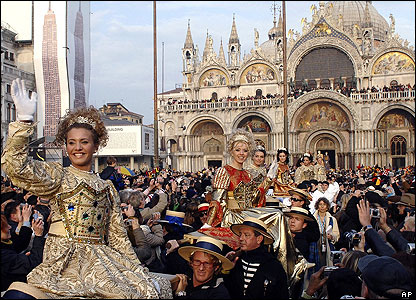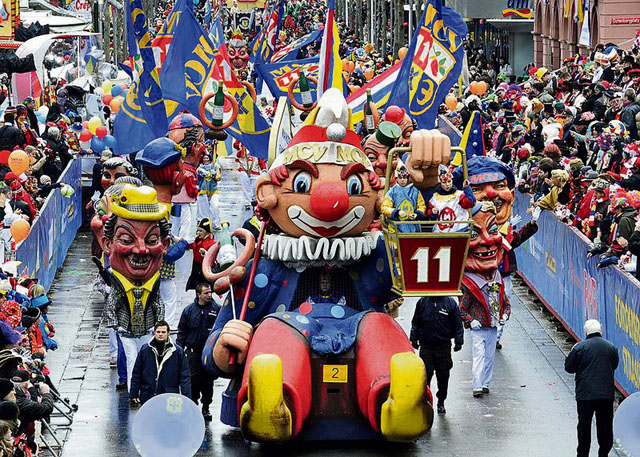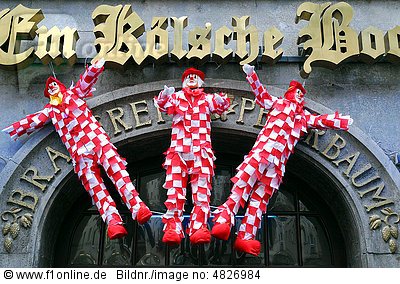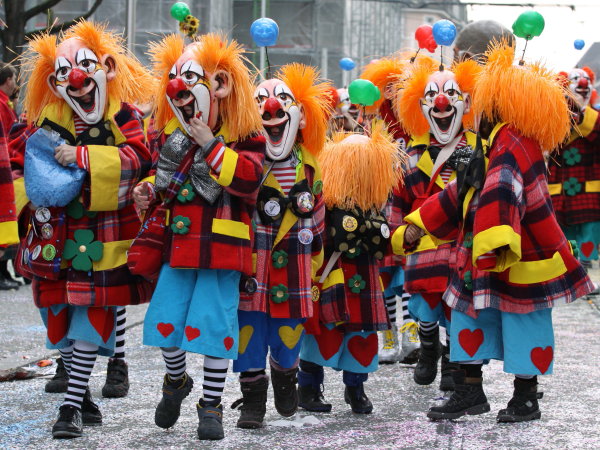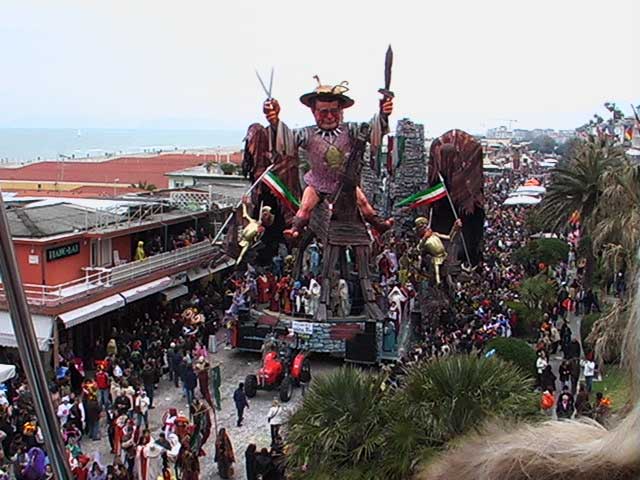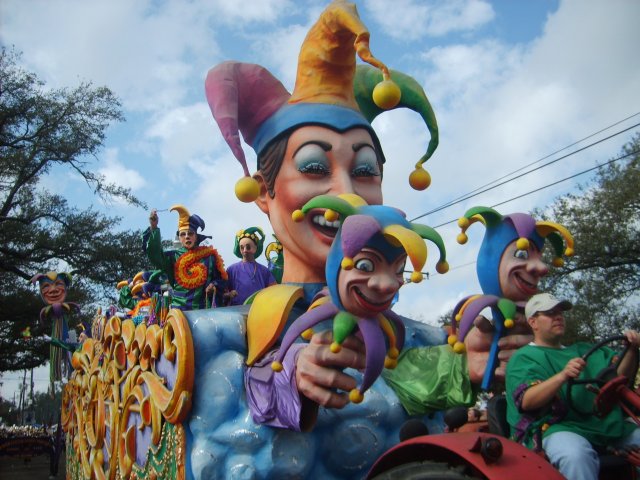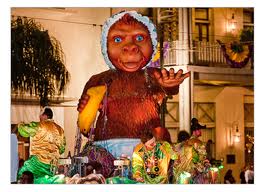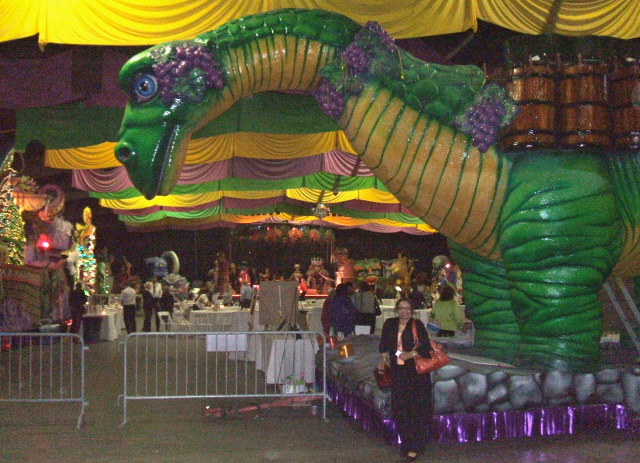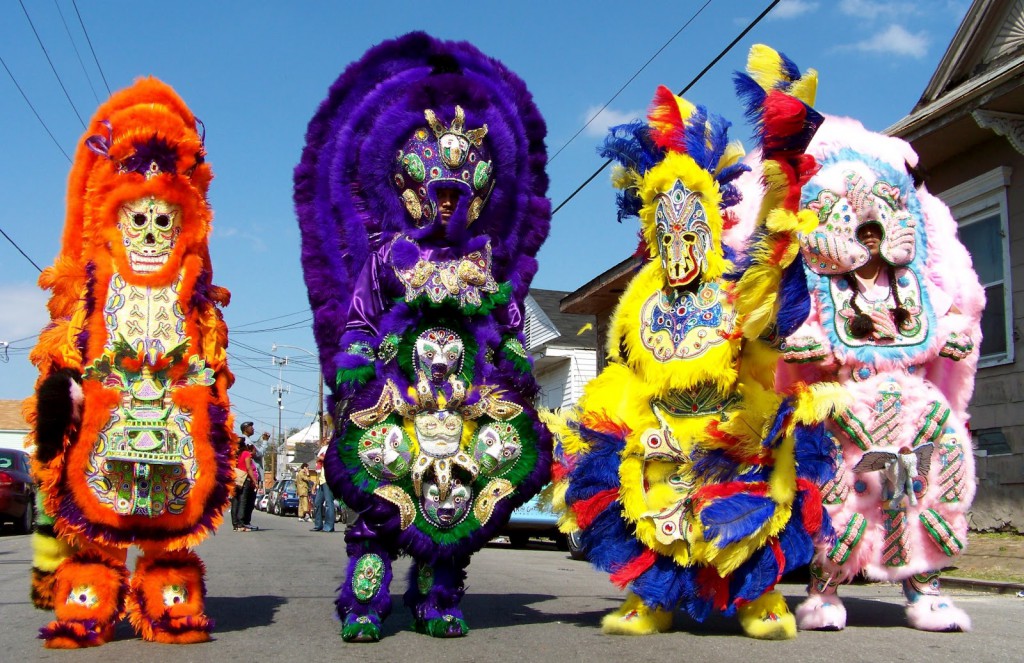Mardi Gras Around the World Series- Venice, Italy!!
0From January 31 – February 17, 2015, Venice will slough off the winter gloom and burst into life. During the Carnival (Carnevale), this most magical of cities fills with a mass of masked party-goers – posing and preening, dancing and philandering, in a slightly surreal re-invention of a great tradition of the city.
Glancing at the portrayals of 18th-century Venetian life in the works of Pietro Longhi or Gabriele Bella in the Querini Stampalia gallery (querinistampalia.it) or the Ca’ Rezzonico museum (visitmuve.it) will reveal that that was exactly what Venice in its party prime was all about. It’s not for everybody. It can be intensely crowded, and rates in hotels and restaurants soar. But it is a unique occasion, and a great time to see the city in a new and exciting light.
In truth, those that get here mid-week during the first week might wonder what all the fuss is about: besides the skating rink in Campo San Polo and a handful of low-grade events in out-of-the-way corners, there’s not a lot to keep you busy. If it’s excitement you want, aim for the weekends, and the final weekend in particular. see the carnival website (carnevale.venezia.it) for more details.
– “The Best Masked Costume Contest” in St. Mark’s Square Gran Finale
– Volo dell’Asino (Flight of the Donkey) from the Piazza Ferretto Tower in Mestre
Carnevale: a history of masks
The Venetian propensity for hiding behind masks was legendary: a rigid caste system coupled with ample opportunities for indulging in a host of vices made anonymity very desirable in an overcrowded city where detection was otherwise unavoidable. In the 13th century a law was passed banning masks while gambling. Later norms made it illegal to make masked visits to convents, or to wear masks during many religious festivals.
In the end, it was easier to stipulate when masks could be worn: most importantly, in a crescendo of frantic merry making, from Boxing Day until Shrove Tuesday – the period known as Carnevale (from carnem and vale, Latin for “meat” and “farewell”: a reference to the Church’s ban on eating meat during Lent). The French stamped out the festivities when they took command of the city in 1797. And so it remained until 1979 when it dawned on local authorities that a revamped Carnevale would boost tourism in the city at a quiet, damp, misty time of year. The festival now lasts for two weeks in the run-up to Lent.
Alternatives
If everything to do with Venice’s Carnival gets too much, the Veneto region offers a host of alternatives, including a magnificent procession of floats in Treviso over the final Carnevale weekend, and the carnival in Verona, this latter claiming superiority over Venice having run uninterrupted since 1531. On the Friday before Shrove Tuesday, a great fat “king” parades through the street with a gnocco (dumpling) impaled on his sceptre, at the head of a procession of floats and costumed citizens.
Mardi Gras Around the World Series- German Mardi Gras!!
0
Carnival or Mardi Gras goes by many names in Germany, depending on the region and dialect. Whether you call it Fastnacht, Fasching or Karneval, it is a time for revelry, humor, and satire. They are all one and the same thing: pre-Lenten festivities celebrated in grand style in mostly the predominantly catholic regions of the German-speaking countries. The Rhineland has its Karneval; Austria, Bavaria and Berlin calls theirs Fasching; and the German Swiss celebrate Fastnacht.
Fasching, also nicknamed fünfte Jahreszeit or närrische Saison by Germans, officially begins in most regions in Germany on the eleventh of November at 11:11 am or the day after Dreikönigstag, so on January 7th. The big bash celebrations are however not on the same given date each year, instead the date varies depending on when Easter is held. Fasching culminates into Fasching week which begins the week before Ash Wednesday.
- Weiberfastnacht – Thursday before Ash Wednesday. This is mainly an event held in the Rhineland. The day begins with women storming into and symbolically taking over city hall. Then, women throughout the day will snip off men’s ties and kiss any man that passes their way. The day ends with people going to local venues and bars in costume.
- Parties, Celebrations and Parades – People will celebrate in costume at various carnival community events and individual parties. Carnival parades abound, it is literally the weekend for people to live it up.
- Rosenmontag – The largest and most popular carnival parades take place on the Monday before Ash Wednesday. These parades come mostly from the Rhineland region. People throughout the German-speaking countries will tune in to watch the biggest German carnival parade of all which is held in Cologne.
- Fastnachtsdienstag – Besides some parades which are held on this day, you have the burial or burning of the Nubbel. A Nubbel is a life-size doll made of straw that embodies all of the sins committed during carnival season. It is buried or burned with great ceremony on Tuesday evening before everyone parties one more time till Ash Wednesday arrives.
Mardi Gras Around the World Series- The Carnival of Viareggio, Tuscany, Italy!!
0
I’ve written about Mardi Gras celebrations outside of New Orleans before. I haven’t been to Italy for Carnival but I do plan on going in the not so distant future. Italy is a wonderful land with a ton of historic attractions and beautiful places to hang out.
Among the many attractions of perhaps the world’s most beloved Italian region, Tuscanythe Carnival of Viareggio deserves a place of honor: it is one of the most important and appreciated carnivals internationally, one in which thousands of people – tourists and Italians alike – participate every year.
It was conceived in 1873 as a masquerade event for the rich bourgeois in their discontent at having to pay very high tax. Through the course of time, though, its principal characteristic has become its enormous, animated parade floats. Atop these floats that parade along the coast of Viareggio, gigantic paper-mache caricatures of the big political, cultural and showbiz names dominate.
They are extraordinary machines with movements that become increasingly complex with each year, showing off the ideal marriage between grandiose scenographic effects, new technologies and, of course, the mastery of Italian artistic talent.The massive floats were first built by the world famous ship builders of Viareggio. These men were skilled carpenters and ironmongers who were well used to building large ships strong enough to travel across oceans. In 1925, the use of papier mache was introduced which meant that as the floats were now lightweight, as well as strong, they could become even larger and more elaborate.
The entire Carnival of Viareggio is accompanied by masked and musical all-nighters in the streets. These parties find their origins in the so-called “colored all-night dances” (veglioni colorati) from the 1920s – where the women donned dresses of certain hues and dyes, and the men had to appear in tuxedo. Even the decorations, confetti and tinsel stars had to follow a specific color theme. Today, the most fashionable bars and locales participate in the celebration, helping to amp up the extraordinary factor of Carnival.
The City of Viareggio, a renowned seaside town, is rich in Art Deco architecture and is a great introduction to this part of Tuscany known as Versilia. Take a trip here, and enjoy the splendid nearby towns of Lido di Camaiore and Forte dei Marmi, as well as bigger cities like Pisa and Lucca.
2015 Orleans Parish Mardi Gras Parade Schedule!!
0We are roughly four months before Fat Tuesday. As we approach Halloween, the Mardi Gras drumbeats are getting louder. I’ve already heard a bunch from my own Carnival krewe, the Krewe du Vieux. We roll throughout the Marigny and French Quarter on January 31, 2015. I LOVE Mardi Gras and always have. Getting older hasn’t dulled my appetite for all things Carnival!
I used to see parades in all the surrounding parishes. I don’t anymore. I guess I don’t feel the need to dash around from parade locale to parade locale anymore. Seeing parades in Orleans, Jefferson and St. Bernard parishes in a single night was no biggie. Seeing the same parade in different spots
| Day | Date | Krewe | Route |
| Sunday | January 6, 2015 | Phunny Phorty Phellows | Uptown Streetcar Route |
| Sunday | January 6, 2015 | Krewe of Jeanne d’Arc | French Quarter |
| Saturday | January 31, 2015 | Krewe du Vieux | Marigny/French Quarter |
| Friday | February 6, 2015 | Krewe of Oshun | Uptown |
| Friday | February 6, 2015 | Krewe of Cleopatra | Uptown |
| Saturday | February 7, 2015 | Krewe of Pontchartrain | Uptown – Napoleon |
| Saturday | February 7, 2015 | Krewe of Choctaw | Uptown – Napoleon |
| Saturday | February 7, 2015 | Krewe of Freret | Uptown – Napoleon |
| Saturday | February 7, 2015 | Knights of Sparta | Uptown – Napoleon |
| Saturday | February 7, 2015 | Krewe of Pygmalion | Uptown – Napoleon |
| Sunday | February 8, 2015 | Krewe of Carrollton | Uptown – Napoleon |
| Sunday | February 8, 2015 | Krewe of King Arthur | Uptown – Napoleon |
| Sunday | February 8, 2015 | Krewe of Alla | Uptown – Napoleon |
| Sunday | February 8, 2015 | Mystic Krewe of Barkus | French Quarter |
| Wednesday | February 11, 2015 | Krewe of Ancient Druids | Uptown – Jefferson |
| Wednesday | February 11, 2015 | Mystic Krewe of Nyx | Uptown – Jefferson |
| Thursday | February 12, 2015 | Knights of Babylon | Uptown – Napoleon |
| Thursday | February 12, 2015 | Knights of Chaos | Uptown – Napoleon |
| Thursday | February 12, 2015 | Krewe of Muses | Uptown – Jefferson |
| Friday | February 13, 2015 | Krewe of Hermes | Uptown – Napoleon |
| Friday | February 13, 2015 | Le Krewe d’Etat | Uptown – Jefferson |
| Friday | February 13, 2015 | Krewe of Morpheus | Uptown – Jefferson |
| Saturday | February 14, 2015 | Krewe of Iris | Uptown – Napoleon |
| Saturday | February 14, 2015 | Krewe of Tucks | Uptown – Napoleon |
| Saturday | February 14, 2015 | Krewe of Endymion | Mid-City |
| Sunday | February 15, 2015 | Krewe of Okeanos | Uptown – Jefferson |
| Sunday | February 15, 2015 | Krewe of Mid-City | Uptown – Jefferson |
| Sunday | February 15, 2015 | Krewe of Thoth | Uptown – Henry Clay |
| Sunday | February 15, 2015 | Krewe of Bacchus | Uptown – Napoleon |
| Monday | February 16, 2015 | Krewe of Proteus | Uptown – Napoleon |
| Monday | February 16, 2015 | Krewe of Orpheus | Uptown – Napoleon |
| Tuesday | February 17, 2015 | Krewe of Zulu | Uptown – Jackson |
| Tuesday | February 17, 2015 | Rex, King of Carnival | Uptown – Claiborne |
| Tuesday | February 17, 2015 | Elks Krewe of Orleanians | Uptown – Claiborne |
| Tuesday | February 17, 2015 | Krewe of Crescent City | Uptown – Claiborne |
New Documentary on Mardi Gras Indians to Premiere at World War II Museum!!
0
The movie, We Won’t Bow Down, was shot over eight years by first time director Christopher Leroy Bower. A native of Ashville, North Carolina, Bower began conducting interviews right after Hurricane Katrina devastated New Orleans in September 2005. He learned about Mardi Gras Indian culture from Steve Mann, who co-produced and photographed We Won’t Bow Down.
Bower first saw Mardi Gras Indians on the first St Joseph’s Day after Katrina and was very impressed with the beauty, resilience and power of this New Orleans-only Carnival tradition. He ran into the Spirit of Fi-Yi-Yi and Victor Harris, who was singing Calling All My People, a prayer. He found it a chilling experience which he couldn’t forget.
He wanted the Indians to tell their own story without any narration or Indian ‘experts’ to dilute their message.
I work with some Mardi Gras indians and have recently put together Indian funk bands in New Orleans such as the Spy Boy All-Stars featuring June Victory and June Squared with June Yamagishi.They have played the Maple Leaf Bar, Tipitina’s, and Chickie Wah Wah among other major Crescent City venues. I too find the Indian culture very unique and beautiful. I’ve written some Indians up on my Mardi Gras Music Series, here’s a couple of links for the Wild Magnolias and June Victory and the Bayou Renegades, appearing next Thursday from 6 to 8 pm at the Ogden Museum, 925 Camp Street as part of their Ogden After Hours Music series.
Around the nation, audiences have been enthralled by the documentary. The crowd was enthusiastic at the Pan African Film Festival in Los Angeles, where the movie had its world premiere. We took some of the guys from the Ninth Ward Hunters and the Comanche Hunters to perform in Los Angeles, Bower said. They did a procession through the Crenshaw Mall, and to just release that on people randomly and to see the response, that was amazing. People were coming from the parking garage, the balconies, little kids were dancing. There was a connection that defies intellectual understanding. It was just in the spirit of what was happening.
Actor, producer and community activist Wendell Pierce saw the doc in Los Angeles and is now a major proponent of the film. His Pontchartrain Park Neighborhood Association is involved in the April 12 New Orleans premiere at the National WWII Museum.
We Won’t Be Bowed Down
National WWII Museum
Solomon Victory Theatre
Red Carpet Screening 7:15 pm
General Screening 9:15 pm
